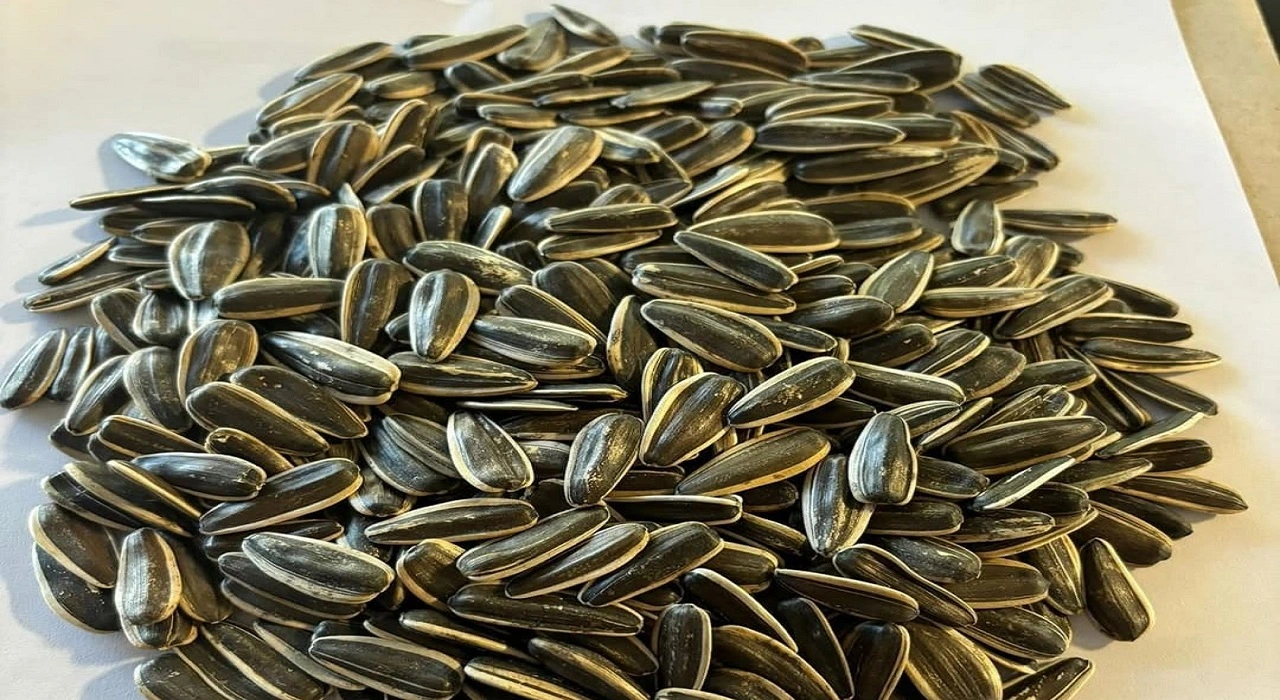Introduction
When you think of sunflower seeds, you might picture a healthy snack or a topping on your salad. But did you know that these tiny seeds are packed with nutrients and offer a wide range of health benefits? From boosting heart health to enhancing your skin, sunflower seeds are much more than just a crunchy bite.
In this blog post, we’ll explore the nutrition profile, health benefits, ways to consume them, and some handy tips for including sunflower seeds in your daily routine.
What Are Sunflower Seeds?
Sunflower seeds come from the center of the sunflower plant (Helianthus annuus). They are harvested from the flower head, where hundreds of seeds can be found. These seeds have a mild nutty flavor and can be consumed raw, roasted, salted, or as part of different dishes.
They are commonly sold either in-shell (the black and white striped shell) or shelled (just the seed kernel).

Nutritional Profile of Sunflower Seeds
Sunflower seeds are rich in:
- Healthy fats (especially polyunsaturated and monounsaturated fats)
- Protein
- Fiber
- Vitamin E
- Magnesium
- Selenium
- Zinc
- Iron
- B Vitamins like folate and niacin
Just a handful of these seeds can give you a nutritious energy boost!
Top Health Benefits of Sunflower Seeds
1. Boosts Heart Health
The healthy fats in sunflower seeds, especially linoleic acid, support cardiovascular health. Combined with magnesium and potassium, they help manage blood pressure and reduce bad cholesterol levels (LDL), making your heart stronger.
2. Rich in Antioxidants
Vitamin E is a powerful antioxidant found in abundance in sunflower seeds. It helps protect your body from oxidative stress, reducing inflammation and lowering the risk of chronic diseases.
3. Supports Immune Function
Zinc and selenium, both present in sunflower seeds, are essential for a healthy immune system. These minerals help your body fight off infections and maintain a strong defense system.
4. Aids in Blood Sugar Control
Thanks to their fiber and protein content, sunflower seeds can help stabilize blood sugar levels. They slow down the digestion of carbohydrates and reduce blood sugar spikes, making them beneficial for people with diabetes or insulin resistance.
5. Promotes Healthy Skin
Vitamin E, again, works wonders for the skin. It protects your skin cells from damage caused by UV rays and pollution. Including sunflower seeds in your diet may help maintain glowing, youthful skin.
6. Enhances Brain Health
The combination of vitamin B6, magnesium, and tryptophan in seeds helps produce serotonin a mood-regulating chemical. This makes the seeds a good option for boosting mood and mental clarity.
7. Supports Weight Management
Although seeds are calorie-dense, they’re also rich in fiber and healthy fats. Eating a small portion can keep you full for longer, reducing the chances of overeating and aiding in weight control.
How to Eat Sunflower Seeds
There are countless ways to enjoy sunflower seeds in your meals:
- Eat them raw or roasted as a snack.
- Sprinkle on top of salads or soups.
- Add to yogurt or oatmeal for extra crunch.
- Mix into homemade granola or trail mix.
- Blend into smoothies.
- Use sunflower seed butter as a spread or dip.
- Add to baked goods like muffins, bread, and energy bars.
Are There Any Side Effects?
While sunflower seeds are healthy, moderation is key. Eating too many, especially salted ones, may lead to:
- High sodium intake (increased blood pressure risk)
- Unwanted calorie surplus
- Mild allergic reactions in sensitive individuals
Always choose unsalted, roasted, or raw options for maximum benefit.
Tips for Buying and Storing
- Choose raw or dry-roasted: Avoid seeds with added oils and salt.
- Go organic if possible: Reduces exposure to pesticides.
- Store properly: Keep them in an airtight container in a cool, dry place. You can refrigerate them for longer shelf life.
- Check the expiration date: Rancid seeds can taste bitter and lose their nutritional value.
Conclusion
Tiny but powerful, sunflower seeds are one of nature’s most nutritious gifts. Whether you’re looking to improve heart health, boost your immune system, or just enjoy a tasty snack, adding these seeds to your daily routine is a smart and simple choice.
So next time you’re hungry, grab a handful of seeds your body and taste buds will thank you!
FAQs about Sunflower Seeds
Q1. Are sunflower seeds good for weight loss?
Yes, when eaten in moderation, seeds can support weight loss due to their fiber and healthy fat content, which help keep you full.
Q2. How many sunflower seeds should I eat per day?
A serving size is about 1 ounce (28 grams), which equals roughly 2 tablespoons of shelled seeds. This amount provides great nutritional value without too many calories.
Q3. Are roasted seeds healthy?
Yes, roasted seeds are healthy, especially when they are dry-roasted and unsalted. Avoid those with added oils or excessive salt.
Q4. Can I eat seeds every day?
Absolutely! Daily consumption of seeds in small portions can be part of a balanced diet.
Q5. Do seeds cause acne?
No direct evidence links seeds to acne. In fact, their vitamin E content may help improve skin health. However, overeating them—especially salted or flavored versions—could affect overall skin condition.
If you’re on the lookout for an easy and healthy snack, sunflower seeds are a brilliant choice. Just remember: a small handful a day keeps your health goals on track!